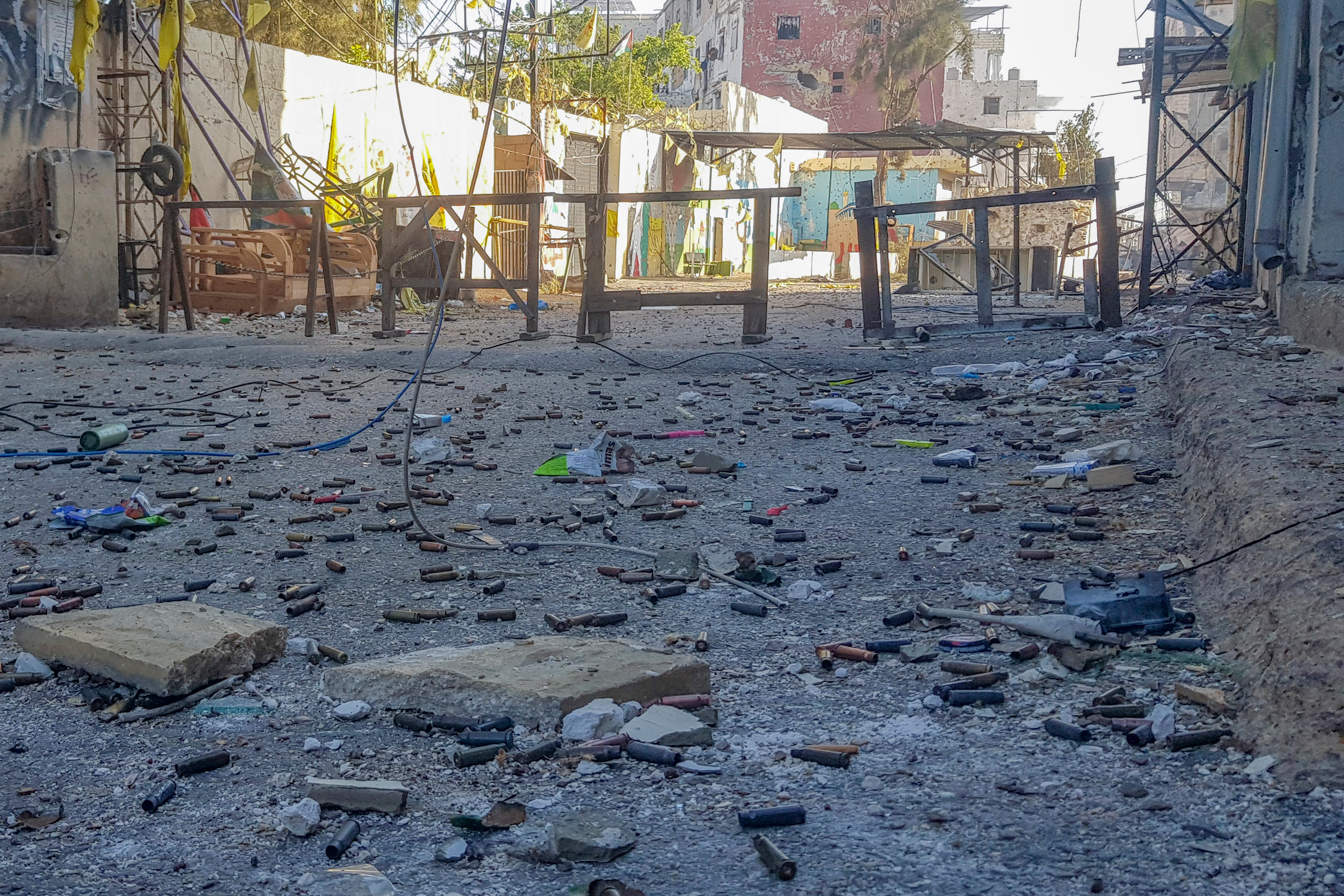An uneasy calm settles over Lebanon's Ein el-Hilweh Palestinian camps after overnight clashes
A cautious calm returned to Lebanon’s Ein el-Hilweh Palestinian camp in south Lebanon after a night of renewed clashes

A cautious calm returned to Lebanon’s Ein el-Hilweh Palestinian camp in south Lebanon Thursday after a night of renewed clashes.
Lebanon’s largest Palestinian refugee camp, which is home to about 50,000 people, has been racked since Sunday by fierce battles between President Mahmoud Abbas’ Fatah party and Islamist groups Jund al Sham and Shabab al Muslim.
Fatah has accused the Islamists of gunning down a Fatah military general, Abu Ashraf al Armoushi, in the camp on Sunday.
The fighting has so far killed more than a dozen people, wounded dozens more, and displaced thousands.
In the city of Sidon, outside the camp’s borders, around 100 camp residents who had fled the clashes were sheltering in a nearby mosque on Thursday. Sheikh Ahmad Nader said that around 2,000 people had sheltered at the mosque since the beginning of the clashes.
“We are tired of all of this,” said Mohamed Sabakh, an Ein el-Hilweh resident staying in the mosque with his family. “We have children.”
Even outside the camp, Sabakh said, they feel trapped by the fighting.
“Look around you, all the stores are closed. People are locked down in their houses. There is nowhere to get bread even, all the roads are closed.”
Dr. Riad Abu al-Einein, head of Al Hamshari Hospital near the camp, told The Associated Press that the hospital had received the body of a person killed in Wednesday night’s clashes, bringing the total number killed in the battles to 13, with dozens more wounded.
If the situation continues, he said, “it will affect not only the families in the camp but all of the people in Sidon, especially as there were several rocket-propelled grenades and gunshots hit residential areas in the city,” he said.
Maher Shabaita, head of Fatah in the Sidon region, confirmed that one of the group’s members was killed in Wednesday night’s clashes.
He said Fatah fighters had defended themselves after the Islamist groups attacked one of Fatah’s centers in the camp, breaking a cease-fire agreement reached Monday, in what he described as part of a “project to destroy the camp and transform the camp from a camp of militants, possibly a camp of terrorists.”
Palestinian factions in the camp have formed an investigative committee to determine who was responsible for Armoushi’s killing and hand them over to the Lebanese judiciary for trial, he said.
The Lebanese army generally doesn't enter the Palestinian camps, which are controlled by a network of Palestinian factions, and hasn't taken an active role in the conflict in Ein el-Hilweh.
In 2007, the Lebanese army battled Islamist extremists in another Palestinian camp, Nahr al-Bared in north Lebanon, razing most of the camp in the process.
Elias Farhat, a retired Lebanese army general who is now a researcher in military affairs, said it was unlikely that the army would intervene in the Ein el-Hilweh clashes, because — unlike in Nahr al-Bared —the combatants haven't directly targeted the army.